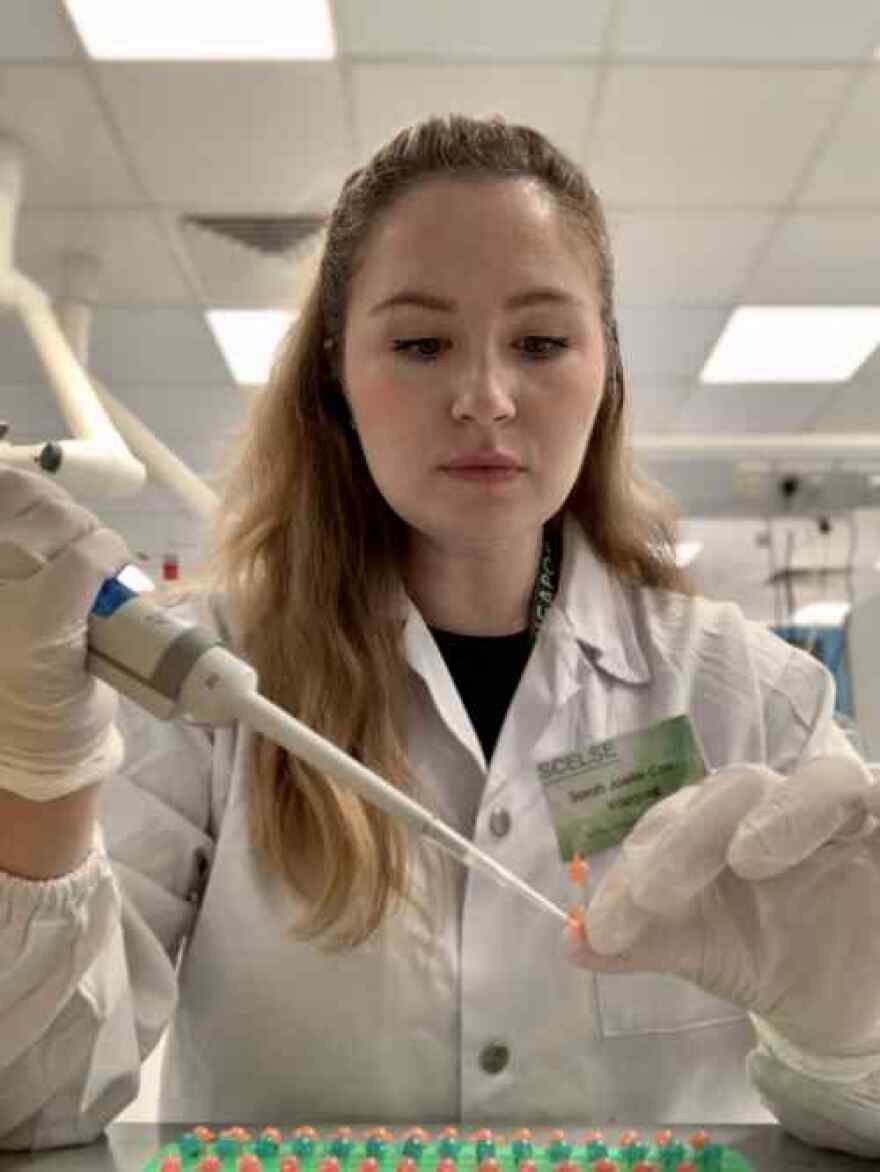Sarah Cox-Vazquez is working to reduce the amount of time it takes to get results from tests for the novel coronavirus.
In Michigan, many laboratoriesare still taking days to return results. Cox-Vazquez, who graduated from Alma College in 2015 and earned her Ph.D. from the University of Michigan in 2019, said the system she’s working on could bring that down to hours.
To develop the test, Cox-Vazquez said, she spends her days working ina lab at the National University of Singapore, handling the viral material that’s causing the COVID-19 pandemic. But she said it’s not as dangerous as it sounds – she’s just handling the virus’s genes, not the actual pathogen.
“I can’t go and infect someone with it. There’s no way,” she said.
The lab where she works is using this viral RNA to develop a test that can detect it faster and more cheaply than the current tests.
Cox-Vazquez said they build molecules that light up to show when they bind to the virus’s genetic signature.
“If you take a UV light scanner, like in CSI, and hold that over the sample, you’ll actually see it get really bright,” she said, referencing the TV crime show trope of revealing genetic material by bathing a room in black light.
Cox-Vazquez said the new tests are simple enough that they could be set up in pharmacies and doctors’ offices, not just in specialized laboratories.
“You could sit next to your sample while it’s reacting, not have to send it off to a lab,” she said.
Speedier results could help curb the spread of the pandemic and ease the burden on contact tracers, whohave been overwhelmed in Michigan and across the country.
“If you know [your results] the same day, you’re not going to Meijer and then infecting 50 other people because you thought you were negative but you were actually positive,” Cox-Vazquez said.
The lab said the method is probably at least a year away from deployment, but even if the current pandemic is over by then, faster virus detection could speed up work in forensics, environmental testing and potential future infectious disease outbreaks.



